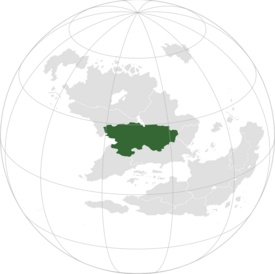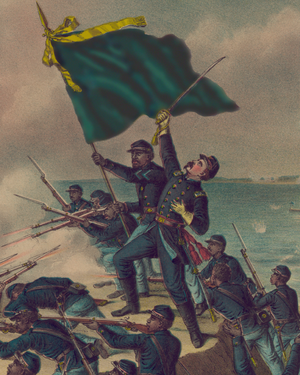User:Finium/Sandbox9: Difference between revisions
No edit summary |
|||
| Line 142: | Line 142: | ||
Hector was devastated and confused that his own commissioners were failing to implement policy properly. Originally, both he and Kélé envisioned more general support for their populist policies, but after Cetrino they began sending dozens of cadres across the nation to ensure proper adherence to their objectives. Their agents often found corruption in the east where officials did not expect oversight and racism everywhere, even in explicit anti-racism committees formed with hand-picked progressive loyalists. Cadres were also responsible for non-legal missions such as communicating with the working class and especially in mobilizing them to participate in state programs. Cadres were often the only government agents present in native communities which lacked mayors or other local political officials in the national chain of command. | Hector was devastated and confused that his own commissioners were failing to implement policy properly. Originally, both he and Kélé envisioned more general support for their populist policies, but after Cetrino they began sending dozens of cadres across the nation to ensure proper adherence to their objectives. Their agents often found corruption in the east where officials did not expect oversight and racism everywhere, even in explicit anti-racism committees formed with hand-picked progressive loyalists. Cadres were also responsible for non-legal missions such as communicating with the working class and especially in mobilizing them to participate in state programs. Cadres were often the only government agents present in native communities which lacked mayors or other local political officials in the national chain of command. | ||
After the death of Hector Atavio, governing figures quickly moved away from his proposed revolutionary society and adopted traditionalist objectives, most notably a uniform Esmeiran society. Atavio himself was famously suspicious of the Gaullican merchant class, who he often claimed had blood on their hands. While there were few Gaullican merchants who had survived the Hector and Kélé years, there were many Creole speakers who were targeted for assimilation into the new Esmeiran social order. Most Creole speakers were black or mixed race and these individuals were labelled for remedial language instruction, which typically prevented them from accessing higher education or government posts. Cadres in the post-Hector government were known to interview candidates for public office and to blacklist anyone who a | After the death of Hector Atavio, governing figures quickly moved away from his proposed revolutionary society and adopted traditionalist objectives, most notably a uniform Esmeiran society. Atavio himself was famously suspicious of the Gaullican merchant class, who he often claimed had blood on their hands. While there were few Gaullican merchants who had survived the Hector and Kélé years, there were many Creole speakers who were targeted for assimilation into the new Esmeiran social order. Most Creole speakers were black or mixed race and these individuals were labelled for remedial language instruction, which typically prevented them from accessing higher education or government posts. Cadres in the post-Hector government were known to interview candidates for public office and to blacklist anyone who a Gaullicois accent or speech impediment. | ||
===Chevaux Jaunes=== | |||
[[File:Andrew_Jackson,_head-and-shoulders_portrait,_facing_slightly_right_LCCN93500745.jpg|thumb|right]] | |||
The general anti-Gaullican sentiment lead many prominent individuals to intentionally obfuscate their ancestry, to feign ignorance of the Gaullican language, and often to exaggerate their personal loyalty to the Atavist regime. As a result, the Gaullican and creole elements of society became entwined with each other and the state, forming the secret society called the Yellow Horses. The extent of this association is unclear, but it certainly existed under Andrés Juánez, a provincial administrator who served in several senior posts. Andrés' first language was Gaullican and he actively sought out other Gaullican speakers and gave them appointments in the government, public contracts, and other favors. This was eventually discovered after Andrés' death when his will, which was written in Gaullican, insisted that be the language of his funeral rite. | |||
Revision as of 20:14, 10 March 2022
Republic of Tarracon República de Tarracōn | |
|---|---|
| Motto: Tarracon Antes Quemada Que Vencida "Rather Burned Than Defeated" | |
| Anthem: March unto Freedom | |
 Location of Tarracon | |
| Capital and largest city | Brechon |
| Other languages | Esmeiran |
| Demonym(s) | Tarraconian |
| Government | Presidential Republic |
| Legislature | General Congress |
| Population | |
• 2020 estimate | 77,895,231 |
• 2002 census | 75,125,986 |
| Currency | New Continental Peso |
The Republic of Tarracon is a nation on the western coast of Asteria Superior, bordered by Rizealand, Chistovodia, Vinalia, Ardesia, Eldmark, and shared a lacustrine border with Cassier, making it the only nation to share borders with every nation in continental Asteria Superior. The majority of it's 77 million inhabitants speak Esmeiran, making it the largest Esmeiran-speaking population in the world as well as the largest self-identified Paretian ancestry nation. Tarracon is a centrally administered state with 18 provinces and several large cities including Brechon, Alenadora, and Turquesa.
Politics
Cadre System
During the Atavio government, Hector and Kélé were both concerned that the nation would backslide towards segregation and racial caste unless they undertook major cultural reforms. One of the most important efforts, which is still in effect now, was the integration of all church parishes, but they also formulated many other policies and especially drew upon their former command to influence and implement policy. In YYYY, a rumor reached Kélé that a commission in Cetrino organized to redistribute seized farmland was only granting plots to white citizens. Surprised that their own officials were so blatantly, Kélé and Hector gathered a group of eleven former commandos and commissioned them to investigate the rumor and to immediately put an end to any segregationist policies they discovered. Immediately upon boarding a train to Cetrino, however, the group's white and black members were moved into separate carriages by other passengers, which they eventually included in their final report. After arriving in Cetrino, they began collecting rumors before attending a commission meeting in which fifteen plots of farmland were distributed to white citizens. Warned to be cautious in their work, they attended several subsequent meetings in which no farmland was granted to black citizens, but were still conflicted whether or not to attempt to rectify the issue alone. They eventually decided that one of their own members, Massa Makan, would apply for a land grant from the commission to test their process. Massa, being a member of the revolutionary vanguard, they assumed would be able to earn a grant from the commission even if they were otherwise biased against black citizens, but his application was denied in the very next meeting.
The group compiled a report of the stories they had heard as well as their experiment and sent it to Hector and Kélé. Upon receipt, it was said that Hector remarked "ellos deberían limpiar la basura", although this exact phrase did not appear in their official order for their agents to arrest the commission members and invalidate previous land grants. To enable the group to effectuate their duties, the order referred to them as a cadre and enumerate the power to make arrests and deputize other citizens. There was some argument within the cadre as to whether or not deputization was warranted in their case since they were official agents of the president and so was the commission indirectly, but ultimately a compromise was stuck and the cadre enlisted the support of the local Carabineros (which was acting as law enforcement at the time) and then confronted the commission at their next public meeting. The commission disbanded without any struggle, but when the cadre invalidated all previous land grants, a group of white protestors quickly gathered and were only disbanded by the Carabineros firing into the air. Eventually, the cadre and several dozen deputies had to individually evict thirty-seven white families and force them to reapply for allotments from a new commission. During these evictions, three people died in a firefight.
Hector was devastated and confused that his own commissioners were failing to implement policy properly. Originally, both he and Kélé envisioned more general support for their populist policies, but after Cetrino they began sending dozens of cadres across the nation to ensure proper adherence to their objectives. Their agents often found corruption in the east where officials did not expect oversight and racism everywhere, even in explicit anti-racism committees formed with hand-picked progressive loyalists. Cadres were also responsible for non-legal missions such as communicating with the working class and especially in mobilizing them to participate in state programs. Cadres were often the only government agents present in native communities which lacked mayors or other local political officials in the national chain of command.
After the death of Hector Atavio, governing figures quickly moved away from his proposed revolutionary society and adopted traditionalist objectives, most notably a uniform Esmeiran society. Atavio himself was famously suspicious of the Gaullican merchant class, who he often claimed had blood on their hands. While there were few Gaullican merchants who had survived the Hector and Kélé years, there were many Creole speakers who were targeted for assimilation into the new Esmeiran social order. Most Creole speakers were black or mixed race and these individuals were labelled for remedial language instruction, which typically prevented them from accessing higher education or government posts. Cadres in the post-Hector government were known to interview candidates for public office and to blacklist anyone who a Gaullicois accent or speech impediment.
Chevaux Jaunes
The general anti-Gaullican sentiment lead many prominent individuals to intentionally obfuscate their ancestry, to feign ignorance of the Gaullican language, and often to exaggerate their personal loyalty to the Atavist regime. As a result, the Gaullican and creole elements of society became entwined with each other and the state, forming the secret society called the Yellow Horses. The extent of this association is unclear, but it certainly existed under Andrés Juánez, a provincial administrator who served in several senior posts. Andrés' first language was Gaullican and he actively sought out other Gaullican speakers and gave them appointments in the government, public contracts, and other favors. This was eventually discovered after Andrés' death when his will, which was written in Gaullican, insisted that be the language of his funeral rite.



